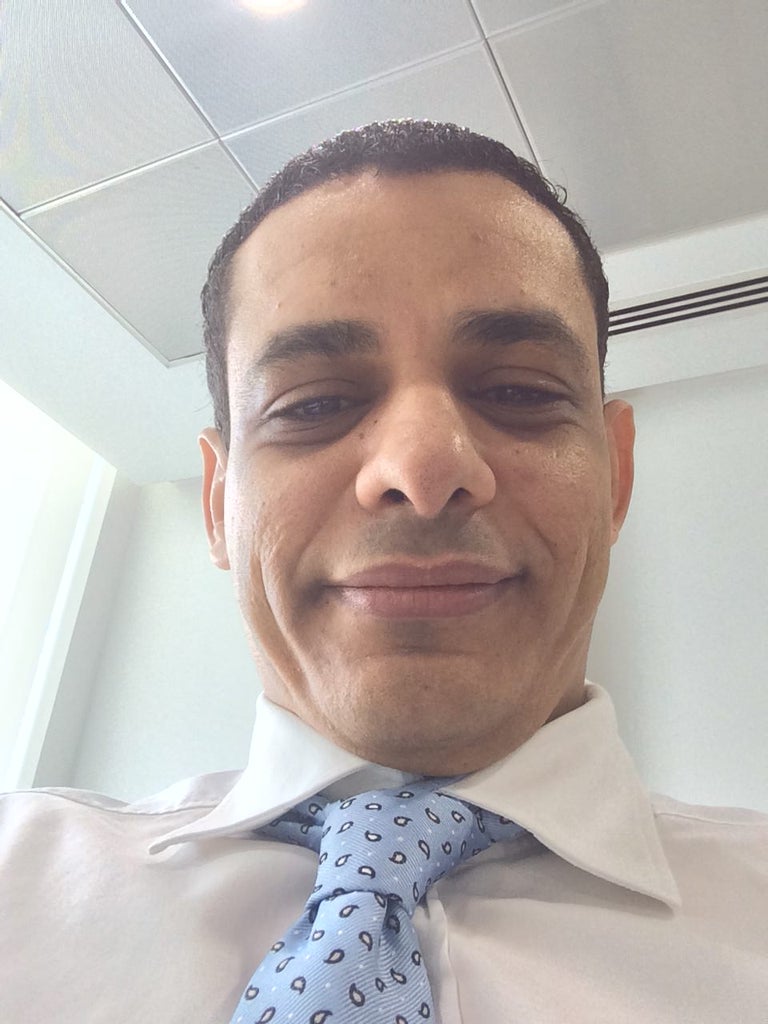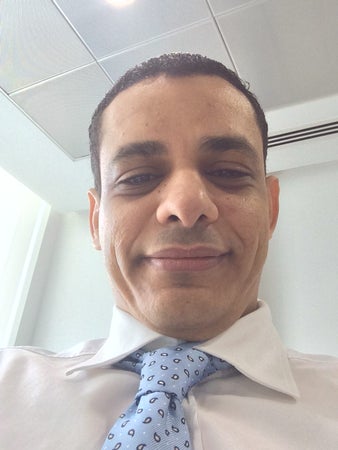Before we dive in, can you tell us briefly about your background?
I work as a VP of Finance for Crossover’s client Trilogy, looking after group Audit, General Ledger, Controllers, Accounts Payable, and ASC606 compliance. I have several team rooms - four with 28 people in them - and five people reporting to me as team room managers.
Before I joined Crossover, I worked for 21 years in office jobs. In the last seven years, I have worked as a CFO in multinational and holding companies. Before that, I worked with Siemens - Siemens Egypt and Siemens Qatar - for 10 years. I worked for Ernst and Young for 3 years as an auditor. I worked with governments in oil and gas here in Qatar for four years. Then I spent two years in Tokyo, Japan on a special assignment for Rasgas.
What are you learning at Crossover?
I work for the COO of Trilogy, and he’s a really cool guy. And what you learn from a guy like him is how to deep dive into everything. Initially, I did not believe that our management philosophy could apply outside of engineering processes. I thought debit and credit in finance did not really require Crossover's management philosophy. But in the past few months, I have completely changed. And that was because I followed our COO’s playbook.
What I learned is that being effective at Crossover is not about being a machine… it’s about having a framework. The framework has to have a quantitative approach. Once you have that framework, you can track your progress in a measurable way towards a big goal. Even if you have troubles along the way, you know how to approach them.
Previously, I would approach finance with my own perspective, which was successful for 20 years. But I’ve learned how to create solutions to root issues, not just temporary fixes to small problems.
Can you provide an example of a problem you approached using Crossover principles?
We work for a company that has 108 business units. Every month we do Financial closing. We used to close 60 to 70 days after the month’s end. Normally, big organizations do closing in 15 working days at most. Without going into all of the details, I applied Crossover principles (e.g., less is more, having a defined metric for each team and weekly deliverables). I now have a financial framework I can follow every minute of every day, and follow up with my team members daily via check-in chats. When people are stuck, we identify the problem quickly and fix it forever.
Last month, we closed in 10 working days, which is better than industry average. The only way we did this was by using these leadership concepts.
You had a fun example of applying Crossover principles in your personal life. Can you tell us more about that?
Definitely. I have two kids: a 9-year-old son and 6-year-old daughter. I used to play on the Egyptian national football team, and my son is playing football now too. He loves tackling… like many 9-year-old boys, right? But he had to learn how to play better on a team.
So I sat down with him, and we literally started applying Crossover principles to his football. We started to write down weekly goals for him - in football and in other areas of his life. These goals are quantifiable and we check in every week. And if he has not accomplished his weekly goals, he can report that “Dad, I’m not done yet, but I am about 80% of the way there.” And we have a blackboard for him and my daughter to approach their goals “Family dashboard.”
What have you found is unique about Crossover?
We set our own benchmarks here. When we define goals, we do our own time motion studies. We are our own benchmark… our own developments and our own products. And that’s awesome. What normally happens is that most companies copy from elsewhere. They identify practices elsewhere and simply adopt them, and maybe tailor them a bit to their unique business. But here, you write your end state and you set up qualitative and quantitative models to get there.
What are some of the hardest challenges you are working on now?
We are working as a finance “factory,” so our end state goal is to automate four major finance functions with a click of a button. NetSuite will also centralize everything for the entire group of companies.
We’re also processing acquisitions at a massive scale. Absorbing new companies into our financial model in 1-3 months has never happened before. We have bought 30-40 companies so far this year and we are working on developing a clear handoff protocol to manage this scale.









